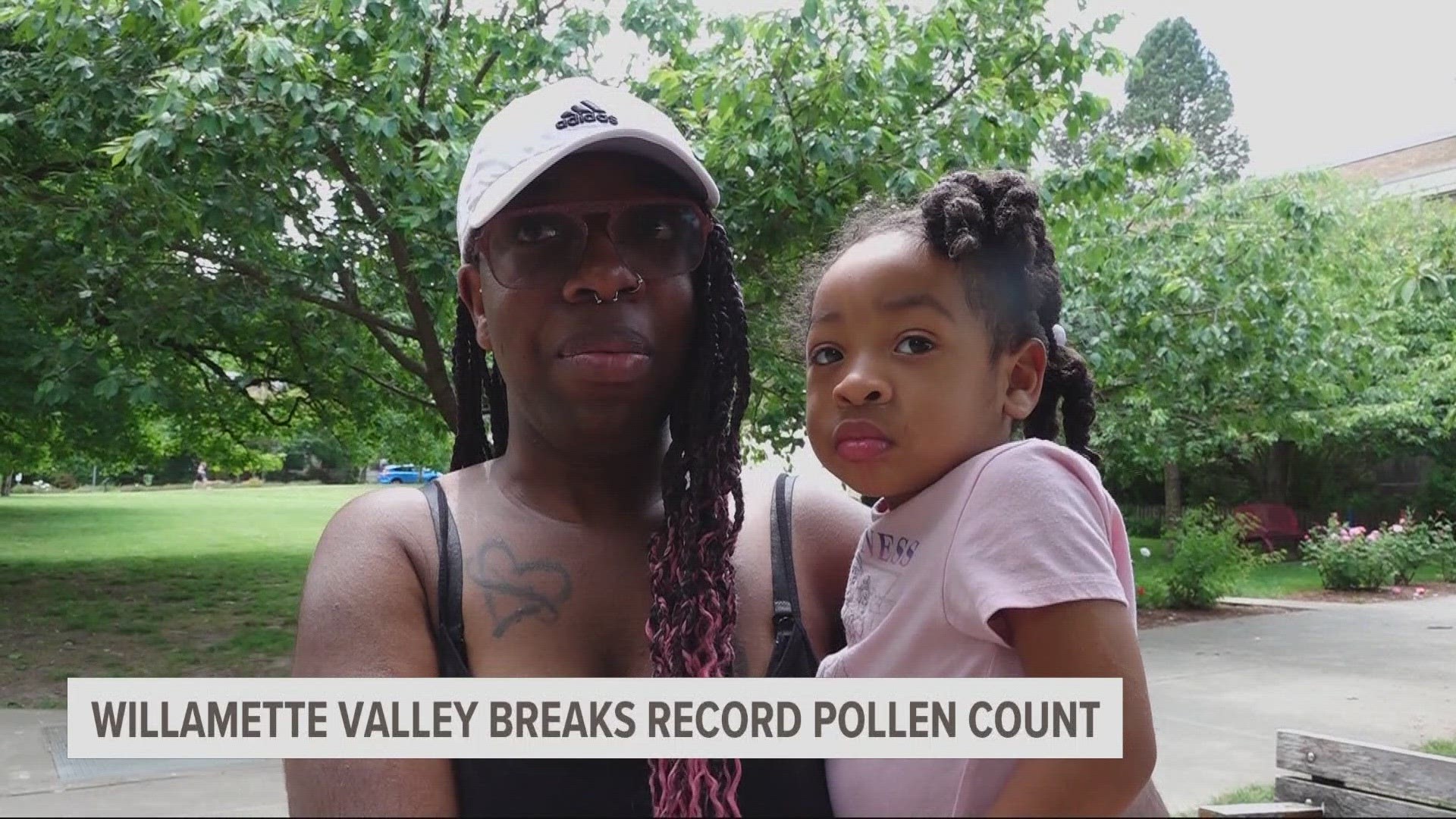PORTLAND, Ore. — Allergy season is in full swing, and chances are you’re feeling that right now.
“This is one of the worst seasons I’ve had with allergies,” said Olivia Kent, a Portlander. "It's just straining on your eyes, coughing, sneezing, (you have an) itchy throat."
That’s because it is peak grass pollen season.
“Here in Portland, our pollen seasons can vary a little bit depending on the weather,” Emily Trevillyan, nurse manager at Allergy Clinic. “And lately what we’ve had is a very long period of time where we have had very dry weather. We haven’t had rain in quite a while.”
Portland hasn't seen rain since May 8.
Trevillyan has been an allergy nurse for the last 23 years. She has seen the pollen season extend past the typical allergy season — April to July.
“There’s actually a very interesting study published this year about pollen season length and how they have now documented that they are now getting longer every year. So, that’s one thing that has changed in the Portland area over the last 20 to 30,” said Trevillyan.
The Willamette Valley is widely known for having high pollen counts.
According to Eugene's Oregon Allergy Associates counting station, Eugene in the Willamette Valley hit a 1,301 pollen count on Tuesday, the highest level recorded in 25 years.
“Eugene is significantly down into the Willamette Valley so their grass pollen levels are quite a bit higher than they are here in Portland,” said Trevillyan. “We are definitely seen in the high category for grass pollen but we’re not seeing the numbers that Eugene is seeing.”
For reference, a 200 grass pollen count is considered "very high."
According to The Weather Channel, Portland’s pollen count on Wednesday was in the upper 700s.
Trevillyan tells KGW the Allergy Clinic in downtown Portland collects pollen counts three days out of the week.
“This is called an impact air sampler, so what it does is it rotates this rod, which the centrifugal force brings down these plastic rods, and that actually samples the air as it spins." said Trevillyan. "It spins for one minute out of every 10 for a full 24 hours. Then we take this down, put a stain on it and we identify what pollens are collected on these greased rods.”
She said she can't say this is the worst allergy season she's seen in her career, but adds she has stayed incredibly busy this season.
“My sister has bad allergies anywhere she goes her eyes pretty much starts to water and her nose starts to sniffle,” said Isabel Hedon, another Portlander.

